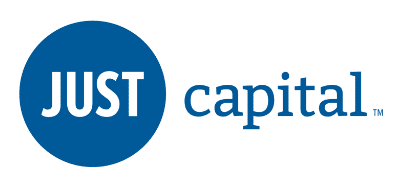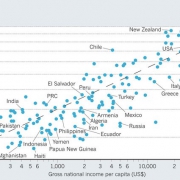A New Paradigm For “Just” Business: JUST Capital publishes its research results
 In 1970 Milton Friedman wrote a now famous essay in the NY Times Magazine declaring that the social responsibility of business is to increase its profits. Since then, writers and researchers have been debating whether this accurately reflects the responsibilities of business in society. In the decade since the Global Financial Crisis these debates have become particularly critical, with some participants questioning the basic principles of free market capitalism and whether they serve our current societal needs.
In 1970 Milton Friedman wrote a now famous essay in the NY Times Magazine declaring that the social responsibility of business is to increase its profits. Since then, writers and researchers have been debating whether this accurately reflects the responsibilities of business in society. In the decade since the Global Financial Crisis these debates have become particularly critical, with some participants questioning the basic principles of free market capitalism and whether they serve our current societal needs.
But what if the best way to do right by shareholders was to run a socially responsible business?
New findings by JUST Capital are showing that this is often the case. JUST Capital is a non-profit research organization whose mission is “to build a more just marketplace that better reflects the true priorities of the American people.” Their distinctive research approach began with a survey of the U.S. public on what they believe makes a “JUST” company.
Given the polarized debates between those who advocate for the Friedman thesis (shareholder primacy) and those who believe it too limiting (stakeholder engagement theory; shared value; conscious capitalism), JUST Capital’s survey results bring a new perspective from the company’s stakeholders — the American public. Instead of asking economists, policymakers, and business leaders what business should do, they asked Americans to define their expectations of business. By crowd sourcing the answer, they give the public a voice in this debate, and also crystallize for business leaders the expectations of two important stakeholders: their customers and their employees.
According to the JUST Capital survey results, the top 3 factors for how Americans define corporate “justness” are 1) worker pay and benefits; 2) worker treatment; and 3) leadership and ethics.
Equipped with this information, companies can streamline their strategies to address these demands–and be financially rewarded for doing so. As Peter Gorgescu highlighted in his Forbes piece: Doing the Right Thing is Just Profitable. Based on the JUST Capital data and findings, Gorgescu writes: “Over the past decade, the most ethical and just American companies have also proven themselves to be the most profitable. They lead their industries over the long term.”
Ethical Systems has drawn similar conclusions after reviewing the academic literature on whether running an ethical company “pays” in the long-run. The research shows that it does. On the site’s Ethics Pays page, readers can find summaries of the existing research. In short, good ethics pays because illegal conduct can be costly, and because good governance and a good reputation are rewarded financially (through lower operating costs and higher sales, among other factors described on the site).
Based on the definitions of a “JUST” business from survey results, JUST Capital ranked 897 publicly traded U.S. companies. You can see their rankings here and their methodology here.









